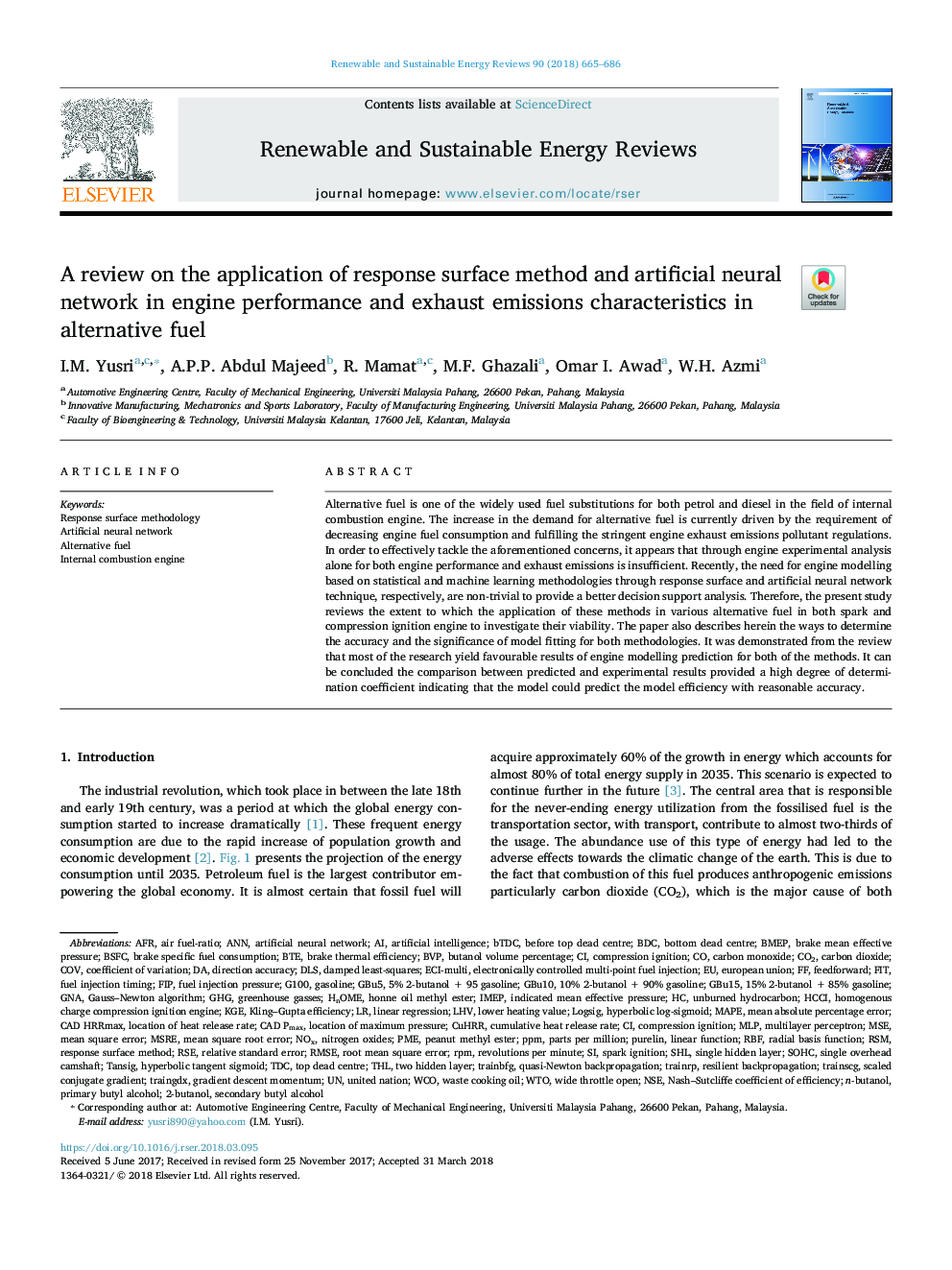| Article ID | Journal | Published Year | Pages | File Type |
|---|---|---|---|---|
| 8111368 | Renewable and Sustainable Energy Reviews | 2018 | 22 Pages |
Abstract
Alternative fuel is one of the widely used fuel substitutions for both petrol and diesel in the field of internal combustion engine. The increase in the demand for alternative fuel is currently driven by the requirement of decreasing engine fuel consumption and fulfilling the stringent engine exhaust emissions pollutant regulations. In order to effectively tackle the aforementioned concerns, it appears that through engine experimental analysis alone for both engine performance and exhaust emissions is insufficient. Recently, the need for engine modelling based on statistical and machine learning methodologies through response surface and artificial neural network technique, respectively, are non-trivial to provide a better decision support analysis. Therefore, the present study reviews the extent to which the application of these methods in various alternative fuel in both spark and compression ignition engine to investigate their viability. The paper also describes herein the ways to determine the accuracy and the significance of model fitting for both methodologies. It was demonstrated from the review that most of the research yield favourable results of engine modelling prediction for both of the methods. It can be concluded the comparison between predicted and experimental results provided a high degree of determination coefficient indicating that the model could predict the model efficiency with reasonable accuracy.
Keywords
ppmTDCHCCIGHGRBFAFRRMSEBMEPLHVIMEPfeedforwardRPMNSEMLPMSEDLSGNAFIPRSESHLMAPEBVPMSREG100Linear functionResilient backpropagationThlrelative standard errorGauss–Newton algorithmcumulative heat release rateWCOBDCBSFCN-butanolANN2-butanolbTDCNOxCOVEuropean Unioncompression ignitionlower heating valueNitrogen oxidesbrake mean effective pressurebrake specific fuel consumptionspark ignitionCarbon dioxideBrake thermal efficiencyResponse Surface MethodResponse surface methodologyRSMWaste cooking oilLinear regressionRoot mean square errorWTOrevolutions per minuteAlternative fuelArtificial Neural NetworkPMEScaled conjugate gradientCoefficient of VariationRadial basis functionFuel injection pressureBefore Top Dead Centreparts per millionTop dead centreBottom Dead CentreFITcarbon monoxideinternal combustion enginemean absolute percentage errorMean Square ErrorIndicated mean effective pressuregasoline artificial intelligenceUnburned HydrocarbonBTEMultilayer perceptronCO2Greenhouse gasses
Related Topics
Physical Sciences and Engineering
Energy
Renewable Energy, Sustainability and the Environment
Authors
I.M. Yusri, A.P.P. Abdul Majeed, R. Mamat, M.F. Ghazali, Omar I. Awad, W.H. Azmi,
